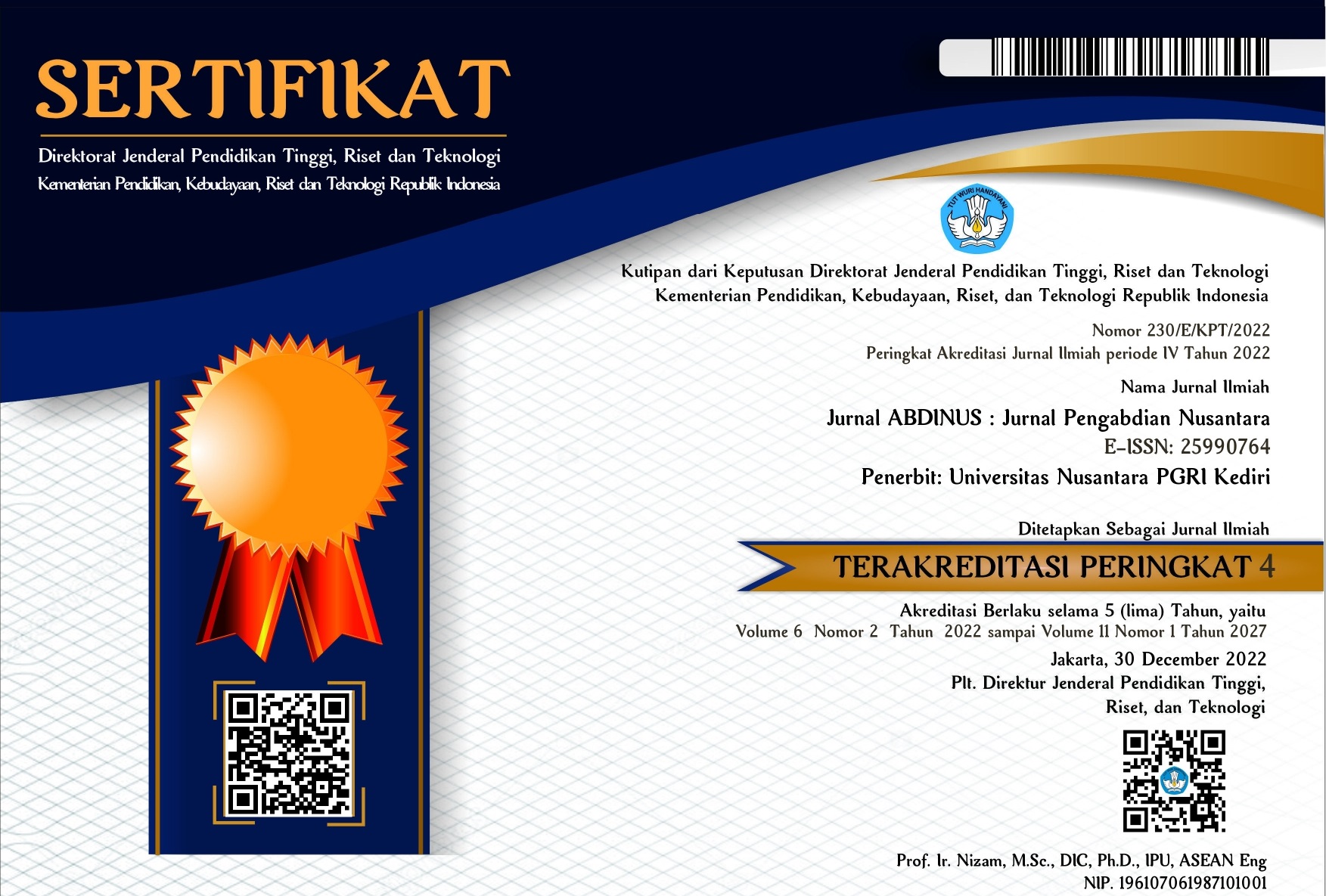Penerapan Analisis Regresi Linier Berganda dalam Penyelesaian Skripsi Mahasiswa
DOI:
https://doi.org/10.29407/ja.v3i1.13512Keywords:
SPSS, Regresi Linier Berganda, MahasiswaAbstract
Students often experience problems in choosing the method of completing their thesis, as a result, student thesis planning is hampered. During lectures, they only know the theory and practice of statistics without practicing in depth. Therefore this dedication is carried out to assist a group of students in determining the method that suits their thesis. The formulation of the problem is due to the lack of understanding for students in choosing analytical tools to conduct their research. As well as adding insight in doing descriptive statistical analysis and multiple linear regression. The purpose of this training is to add insight in analyzing using the SPSS software. The target in this service is the final year students who are taking thesis which is held in June 2019. This training will later use the SPSS software as an analytical material in conducting thesis. From the results of monitoring during the assistance in this service, the majority of participants with a percentage of 84% who can complete 5 cases with a perfect score of 100, another 16% get a score of 70. And from these results are in accordance with the training target, as well as many of the participants who expressed satisfaction with the training that was held.
Downloads
References
Sujarweni, V.W. 2015. SPSS Untuk Pelatihan. Yogyakarta : Pustaka Baru Press.















